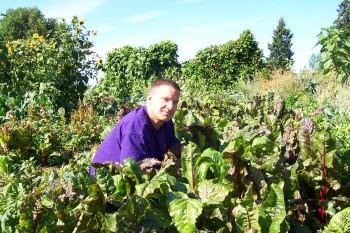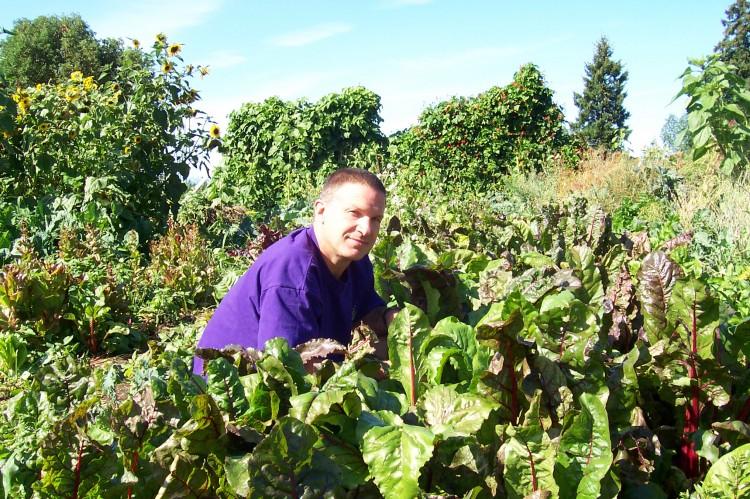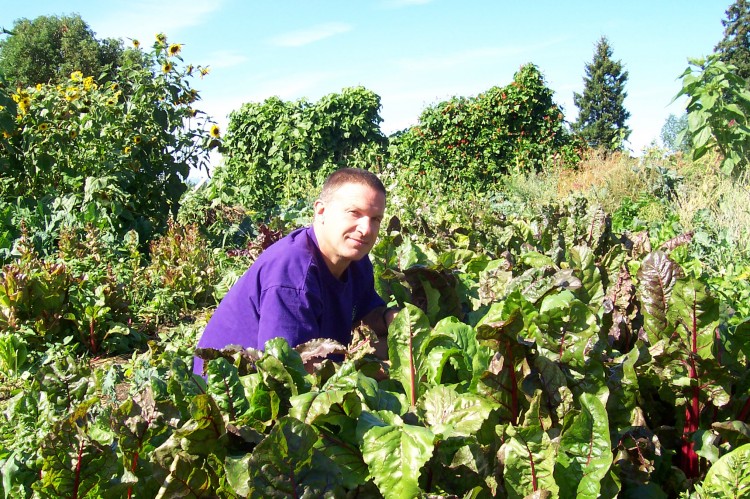B.C. Man Could Get Jail for Selling Home-Grown Veggies
When Dirk Becker began converting his 2.5 acre lot from a gravel pit into a thriving but small-scale organic farm, he had no idea he would face the wrath of Town Hall.

Dirk Becker on Compassion Farm. The District of Lantzville has threatened Becker with legal action for growing and selling food in violation of a bylaw. Nicole Shaw

Joan Delaney
Senior Editor, Canadian Edition
|Updated:





